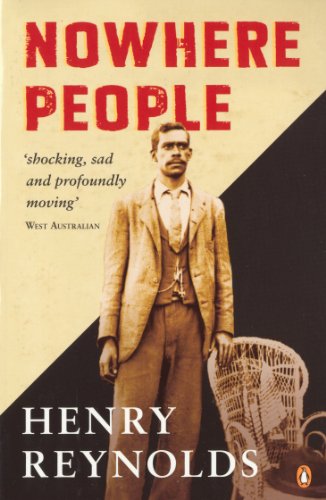Nowhere people
Penguin, $29.95 pb, 305 pp
Evolutionary politics
In 1936, West Australian MP Leslie Craig stated in parliament that the (then) current figure of Aboriginal ‘half-castes’ in Australia – approximately 4000 – would soon number 40,000 if something were not done to stem the tide of this growing problem. Seventy years later, in 2006, a federal member of parliament has suggested that Australia is in danger of ‘aborting itself out of existence’ and becoming ‘a Muslim nation in fifty years’ time’ – and this only a few months after the Cronulla race riots. It is clear that race-based fears are still prevalent in our predominantly white Australia. Henry Reynolds’s latest book, Nowhere People – like most of his books – is as much an analysis of our contemporary society as it is an historical examination of how international theories of race shaped Australia’s identity over the past 218 years.
The notion of ‘race’ was central to the debate that was brewing in the late 1700s – coinciding with the founding of the new English colony in New South Wales – concerning the origins of humankind. Two opposing positions had been staked. On the one hand, the monogenesists argued that all humankind is part of a single species, in which racial variations are due to social and geographical circumstances. The polygenesists, on the other hand, argued that such racial variations exist because there are in fact different and separately created races.
Continue reading for only $10 per month. Subscribe and gain full access to Australian Book Review. Already a subscriber? Sign in. If you need assistance, feel free to contact us.












Leave a comment
If you are an ABR subscriber, you will need to sign in to post a comment.
If you have forgotten your sign in details, or if you receive an error message when trying to submit your comment, please email your comment (and the name of the article to which it relates) to ABR Comments. We will review your comment and, subject to approval, we will post it under your name.
Please note that all comments must be approved by ABR and comply with our Terms & Conditions.